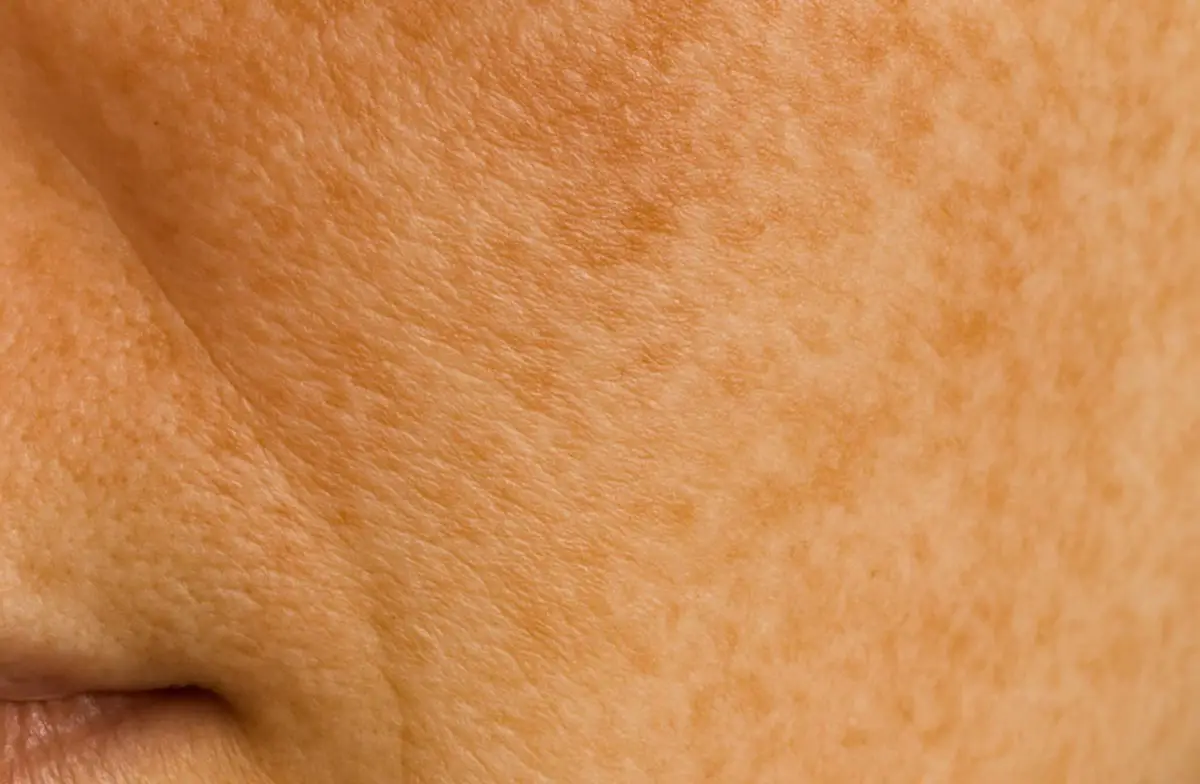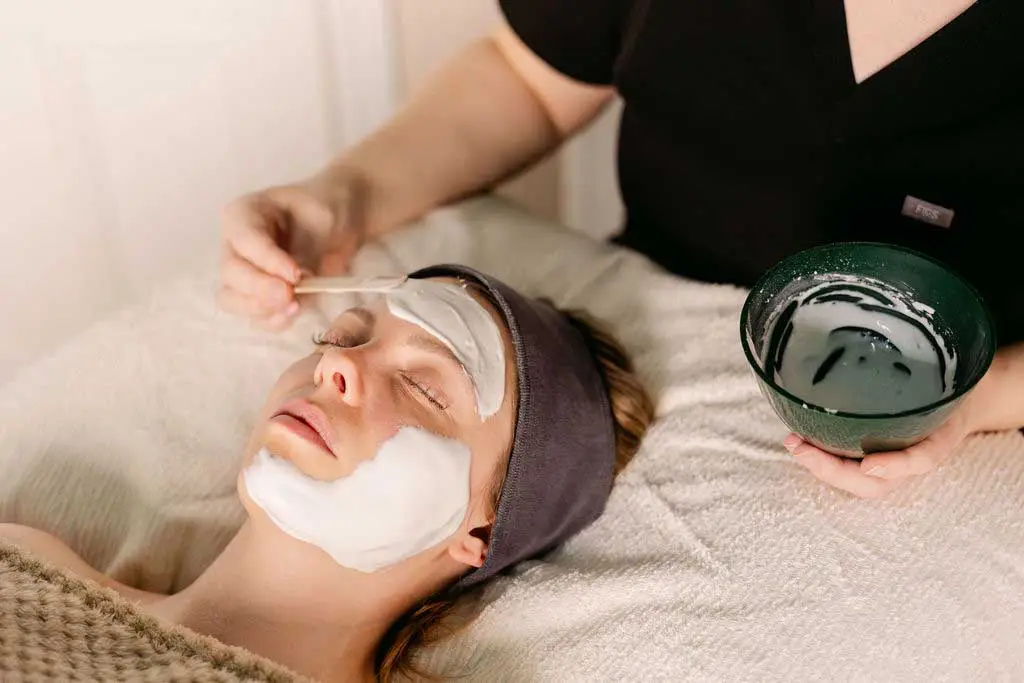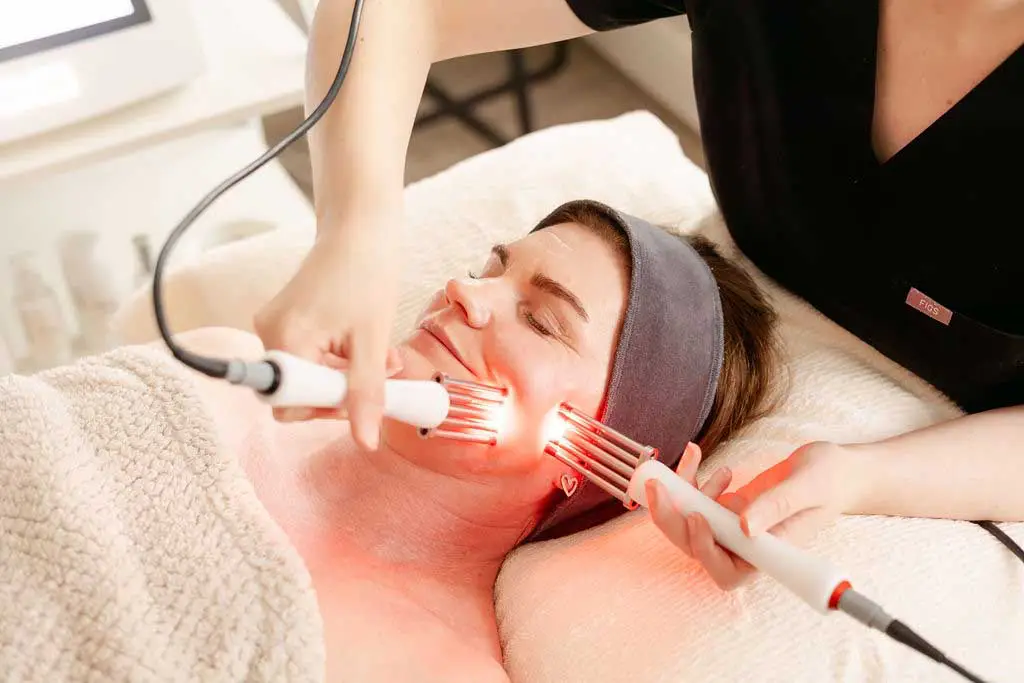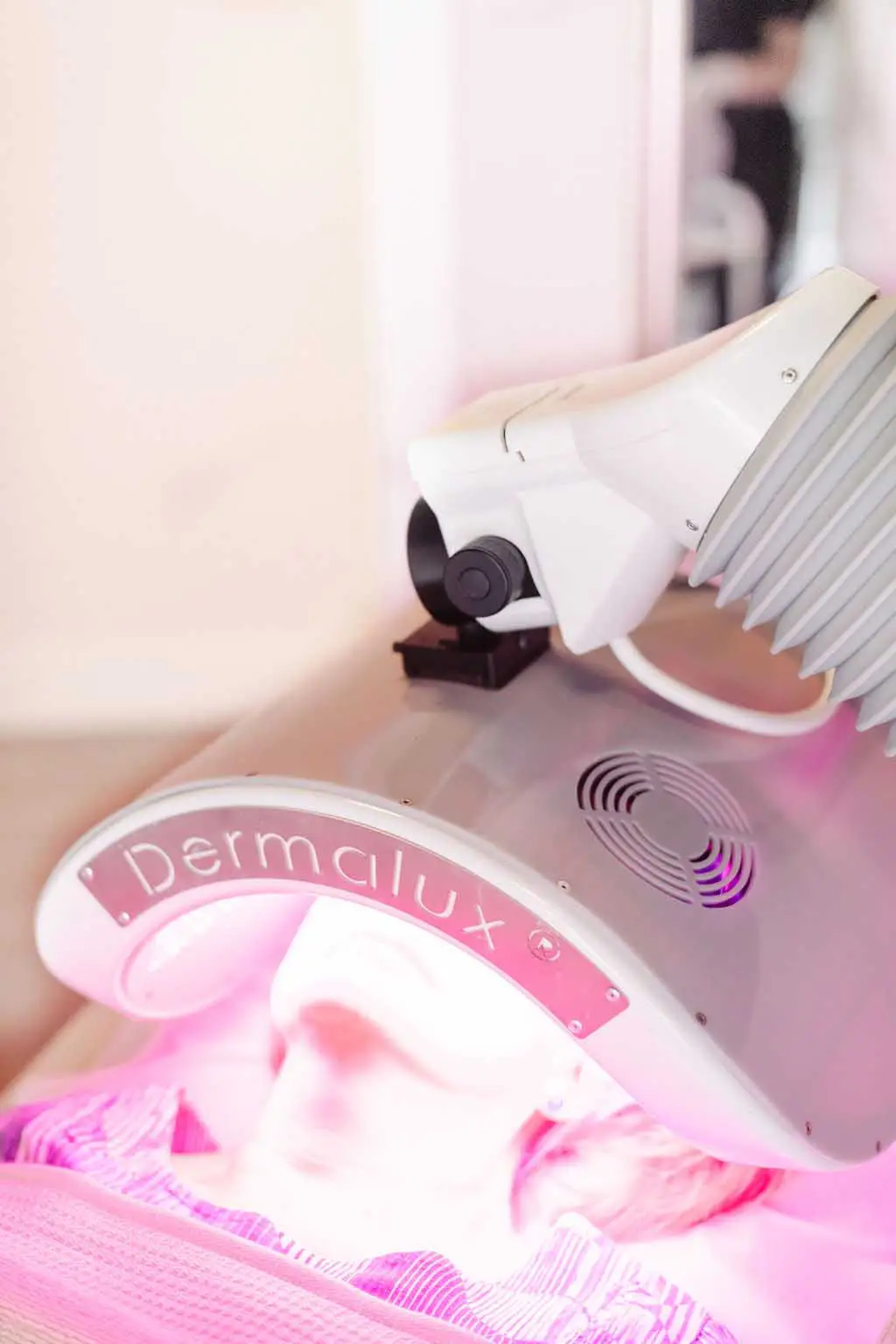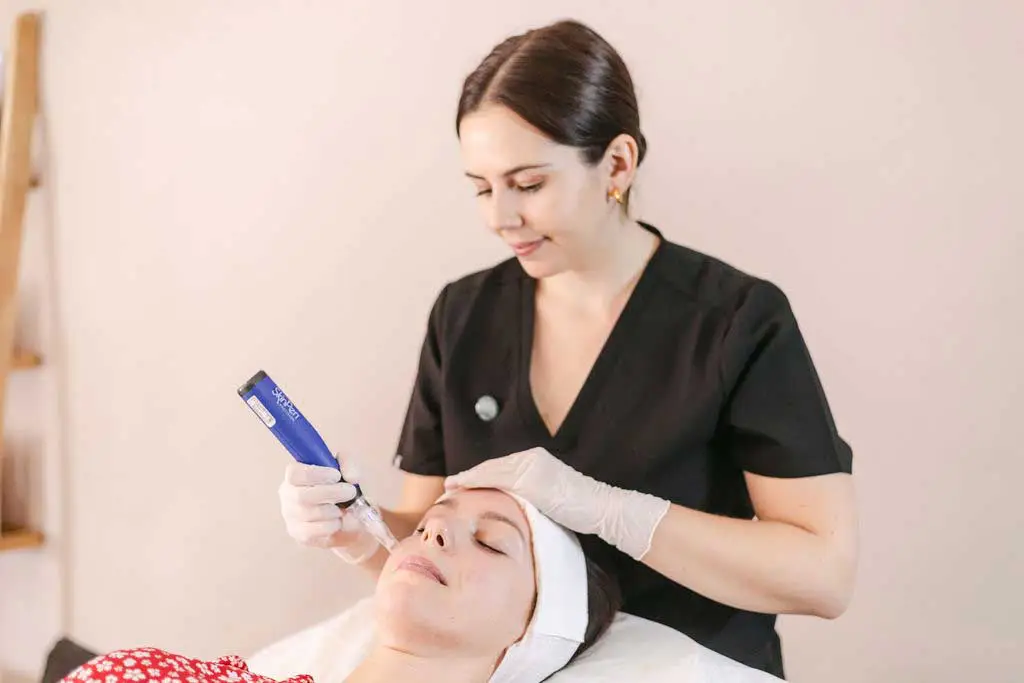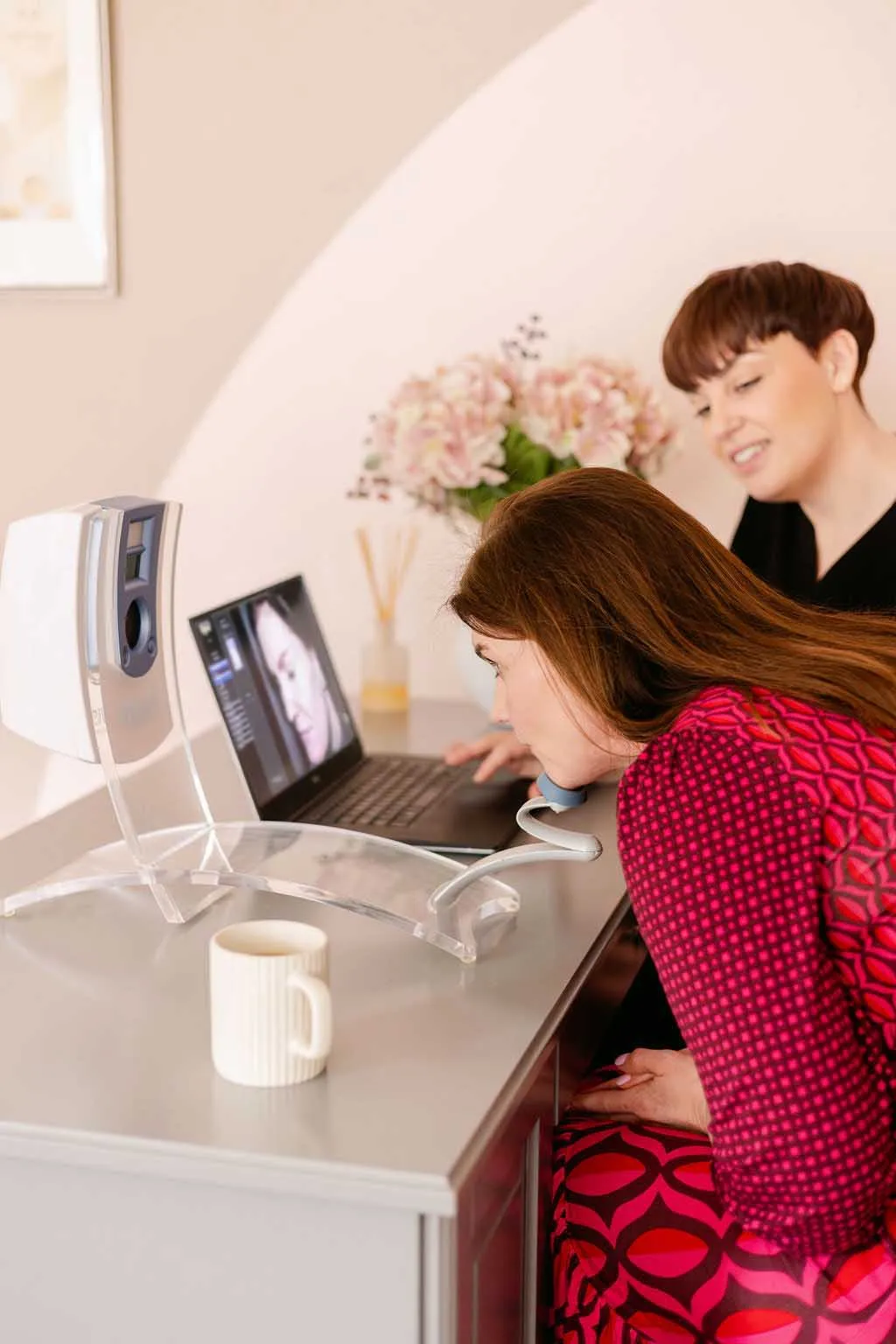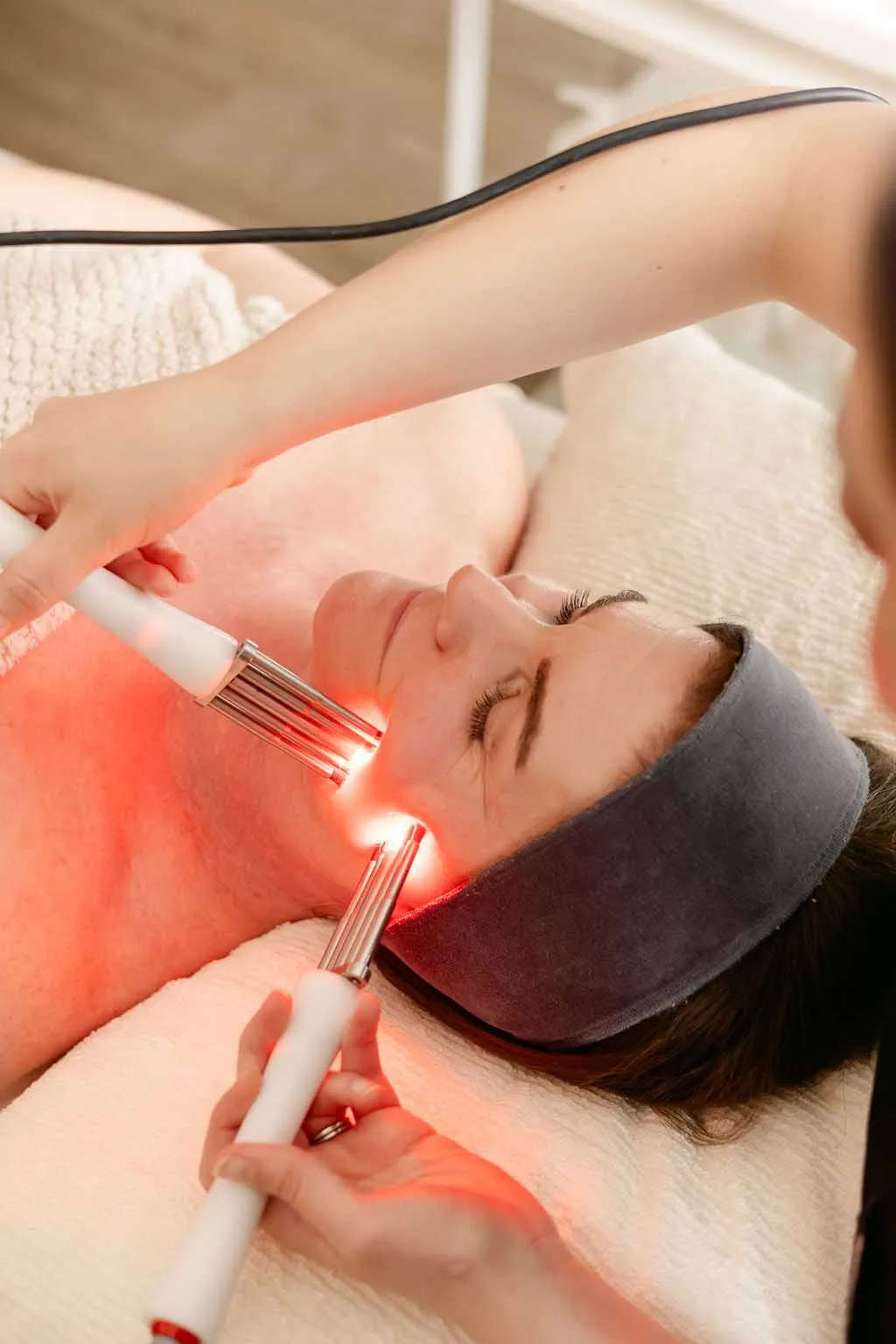What does pigmentation look like?
Pigmentation, specifically hyperpigmentation, often presenting as age spots or sun spots, appears as darker patches of skin, usually on areas that have been exposed to the sun, such as the face, hands, décolletage, and arms.
These spots can vary in size and shade, ranging from light brown to dark patches. Over time, pigmentation can also manifest as uneven skin tone, causing the complexion to appear dull or blotchy. It’s a common concern for those who have spent a lot of time in the sun, particularly as the skin ages.
What causes pigmentation?
The primary cause of pigmentation is sun exposure over the years. UV radiation stimulates the production of melanin, which leads to darkening of the skin. Other contributing factors include:
- Cumulative Sun Damage: Years of unprotected sun exposure can cause the skin to produce excess melanin, leading to dark spots, freckles, or general pigmentation.
- Smoking: Smoking can accelerate skin aging and contribute to the development of uneven pigmentation by impairing circulation and reducing the skin's ability to repair itself.
- Hormonal Changes: Pregnancy or hormonal therapies can also lead to pigmentation changes, including melasma (often referred to as the "mask of pregnancy").
- Genetics: Your family history can influence how prone you are to developing pigmentation.
What can you do right now to help?
If you’re noticing pigmentation or uneven skin tone, there are steps you can take right now to help manage and prevent further discoloration:
- Always Use SPF: Daily application of SPF is crucial in protecting your skin from further sun damage. We recommend using an SPF 30 or higher every day, regardless of the weather.
- Avoid Direct Sun Exposure: If you can, avoid the sun during peak hours (10 am - 4 pm). Wearing protective clothing and seeking shade when outside can also help prevent pigmentation from worsening.
- Consider Lifestyle Changes: Smoking and excessive alcohol can contribute to skin damage and pigmentation, so quitting smoking and reducing alcohol intake may improve your skin health over time.
- Consistent Skincare Routine: Hydration and nourishment are key in maintaining healthy skin, so incorporate a routine with brightening and anti-aging ingredients to help prevent pigmentation.
What can we do at Elite Skin Studio to assist further?
At Elite Skin Studio, we offer a range of treatments designed to target and reduce pigmentation, leaving your skin clearer and more even-toned:
- IPL for Pigmentation: IPL (Intense Pulsed Light) targets dark spots by emitting light that breaks down the melanin, leading to a reduction in pigmentation and a brighter complexion. It’s ideal for treating larger areas of pigmentation, such as the face and hands.
- Advanced Electrolysis for Specific Spots: For more prominent or isolated spots, we offer Advanced Electrolysis. This treatment uses short-wave diathermy to target and remove specific pigmentation spots, leaving the surrounding skin unaffected.
- IPL IllumiFacial® for Overall Rejuvenation: Our IllumiFacial® combines IPL with a Tri-Fruit Acid Peel and Stem Cell Serum to treat all-over pigmentation, improve skin texture, and rejuvenate the complexion for a more radiant, even skin tone.
Your homecare focus from Elite Skin Studio
For long-lasting results, we recommend a tailored homecare routine to support your skin between treatments and help prevent further pigmentation. Here's some key ingredients within your homecare we recommend:
Vitamin A
- Why it helps: Vitamin A promotes skin cell turnover, helping to reduce dark spots, fine lines, and skin texture issues. It encourages the skin to renew itself, shedding the top layers of dead skin cells and preventing clogged pores that can contribute to pigmentation.
Vitamin C
- Why it helps: Vitamin C is a potent antioxidant that brightens the skin, reduces the appearance of dark spots, and protects against environmental damage like sun exposure. It inhibits melanin production, which helps prevent the formation of new pigmentation and accelerates the lightening of existing spots.
Tyrosinase Inhibitors
- Why it helps: Tyrosinase is the enzyme responsible for melanin production in the skin. Inhibiting this enzyme can reduce the formation of new pigmentation. Ingredients like arbutin and kojic acid work to slow down melanin production, helping to prevent dark spots and even out skin tone.
SPF Protection
- Why it helps: Sun exposure is the leading cause of pigmentation, and using a broad-spectrum SPF 30 or higher with UVA and UVB protection every day is crucial for preventing further damage. An effective sunscreen protects the skin from UV rays and helps maintain the results of your treatment by stopping new pigmentation from forming.
What are the limitations of pigmentation treatment?
While our treatments are highly effective in reducing pigmentation, it's important to remember that pigmentation is a recurring concern, especially for those with a history of sun exposure.
Even with professional treatments and excellent homecare, new spots can form if sun protection isn’t consistently used. Additionally, pigmentation may not be fully eliminated in one session, and a course of treatments may be needed to achieve the best results. Regular maintenance treatments may be required to manage and prevent further discoloration.


